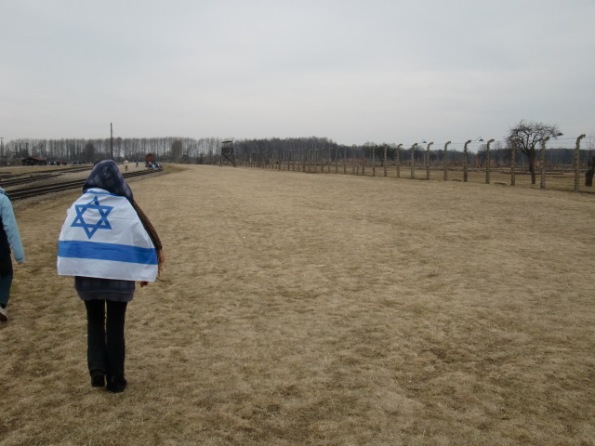
Each year on the 27th of Nissan, as we commemorate those who perished in the Holocaust, the events themselves become more remote in time. Young people today are far less likely to encounter someone who lived through the Holocaust, their knowledge of that time and its significance rely on museums such as Yad Vashem Holocaust History Museum, books, films, and educational initiatives. The Year Course of the Young Judaea movement, supported by Hadassah, brings high school graduates to Israel for a year of studies. Year Course students may choose to participate in Kuma, the Dr. Marcia Robbins-Wilf Hadassah/Young Judaea Holocaust Studies Program, an optional one-week journey to Poland that explores the heritage of 1000 years of Jewish history in Poland and studies the events of the Holocaust through a Zionist prism, bearing witness to the destruction of Polish Jewry.
Two students from the Young Judaea Year Course share their thoughts here: Jenna Basman reflects on what she has learned from the experience, and Elana Stern shares an excerpt from her journal, written after visiting the mass graves in the Polish town of Tykocin and the death camp Treblinka.
Nineteen year old Jenna Basman of Golden Valley, Minnesota, returned recently from the Kuma journey to Poland, and wrote of her experiences:
I’ve never been happier to return to Jerusalem. The entire plane began clapping and cheering as everyone looked out the window and saw our beautiful, familiar home. Instead of going over every cemetery, death and concentration camp, ghetto, and grave that I visited during the week of Poland, I’m going to summarize what I learned from the trip.
The most powerful thing that stuck with me was the strong Jewish community that survived after this terrible atrocity. My pride for Judaism swelled as I walked through the gas chambers, knowing that Hitler’s goal to wipe out the Jewish race failed. We toured six or seven synagogues that were busy and vibrant with Jews before the genocide and in every one, our group came together and sang “Am Yisrael Chai”.
It was really empowering bringing these synagogues back to life. At one of the gravesites, my group was singing Hatikvah. Halfway through, I faintly heard another Jewish group up the hill singing the same thing. This warmed my heart; the support and community of the Jewish people is unbelievable, and we all looked over at their group and instantly felt a deep connection.
This trip has strengthened my desire to continue the Jewish tradition to the best of my ability, not for religious purposes but for the simple sake of sustaining the beautiful culture, sense of community, and for the respect of all of those who struggled and sacrificed so much in order for the Jewish religion to survive.
Another thing I took from this week was that even in the midst of horror and hell, kindness still prevailed. I heard many heartwarming, beautiful stories of survivors, righteous Gentiles, and also of those who passed away during the war. People risking their lives for others, Jews risking their lives to practice Judaism under the Nazis’ noses, inmates caring and helping one another, and the fight to survive in those circumstances: it is all unbelievable.
One story I heard was from a survivor (not directly but 2nd generation). Two Nazis thought it would be “funny” to push a little girl into the sewage and see how long she could last until drowning. Being only 7 or 8 at the time, they came and pushed her in. She couldn’t swim and started drowning while the Nazis were laughing at this sick, twisted game. A Jewish inmate walked by and jumped in to save her. This courageous act risked this man’s life in two ways; one, the sickness and disease he could have gotten could kill him because of his extremely low immune system, and two, interrupting the Nazis’ “fun” could lead to instant death.
He pulled her out and she survived until the end of the war. This woman now lives in Israel. She doesn’t know what happened to the man who saved her, nor does she even know his name, but the pure goodness and compassion that he showed reminds me that even though the Holocaust was a place of absolute hell and evil, there were many amazing people that took extraordinary measures in order to help others. Although the Nazis tried to completely dehumanize and belittle all of the Jews, the Jews maintained their humanity and pride.
Despite being completely exhausted from the long, sleepless night, our bus went straight to the Kotel after landing in Israel at 5 AM. Feeling the weight of millions who were murdered during the Holocaust, my heart was lifted and rejuvenated when I touched the wall alongside dozens of spirited Jews. The vibrancy and liveliness of the city brought me to such a deep appreciation of Israel and I’ve never been so proud of this homeland.
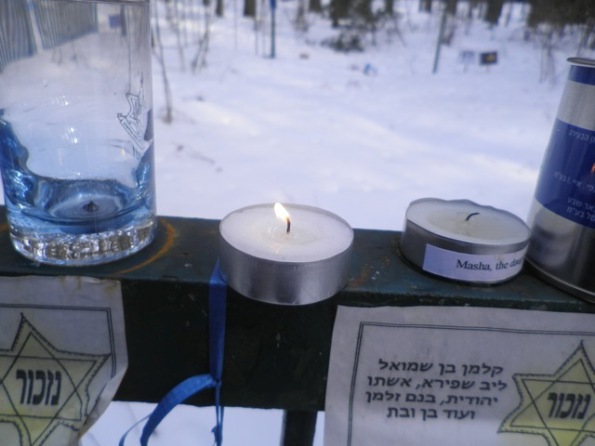
Excerpt from Elana Stern’s Poland Journal: The following was written on March 8, 2011, in response to visiting the mass graves in the Polish town of Tykocin and later, the death camp Treblinka:
Before Treblinka and many other death camps opened, Tykocin Jewry (about half of Tykocin’s population was Jewish), was murdered in mass graves in the forest a few kilometers from the town. On the first day of the killings in August 1941, 2,000 Jews were gathered in the square, marched past their synagogue and cemetery, and into the forest. There, they were forced to strip and face their death by firing squads. Visiting these mass graves was the first time I realized the true gravity of the events that took place here 70 years ago. There was once a small town, full of educated, practicing Jews, who one day faced extermination. Why? Because of who they were. There are now 3 mass graves in the forest near Tykocin with over 3,000 bodies; women, children, men, mangled, tangled, left to suffer. Our tour guide read us a story of a little girl named Ada who died in the Tykocin massacre. She was no more than five, probably dressed in her favorite Shabbat clothes, hanging onto her mother, scared and unsure of what was about to happen to her. In the ground where I stood lies a little girl named Ada who died a horrific death and who must be remembered. When I was five years old, I went to dancing school and saw my friends; I lived a childhood devoid of the terror Ada so unfortunately faced. I lit a memorial candle at the gravesite and said Kaddish for her, and for all those who died in Tykocin.
My toes were frozen and I couldn’t feel my nose, but as I walked back toward the bus, I realized how fortunate I was, just in that moment. Those who came to the same forest 70 years ago never walked back. They never left the cold and the misery. So why and how am I so lucky? Why am I born in America in 1991 and not in Poland sixty years earlier? Why do I get to grow up free and healthy and safe while Ada perished along with so many others in Tykocin? Why am I a Jew of the 21st century, living in New Jersey, and not growing up in 1941 Eastern Europe? How did I get chosen for this life and not that, of thank God, Ada or Miriam or any child who never grew up to be whatever they wanted to be? How am I so lucky?
The Jews of Tykocin, the number of Jews who met their death at Treblinka (I feel like these numbers should only exist as statistics in history. It sickens me to know it’s all real) make me feel overwhelmingly guilty. I’m living in Israel and traveling the world with my warm boots and scarves and mittens, my friends, a phone to call my family and know they’ll answer. The Jews who came before, who died and sacrificed so I can live the life I do now, never had any of these things during their dreaded walk through these trees. Tomorrow, and every day after it, for every moment I feel cold or over-tired, or at all miserable, I will think of all these millions of innocent Jews, of the ancestors I’ll never know, and I will be thankful for every moment I am a living, breathing, even freezing, American Jewish girl.
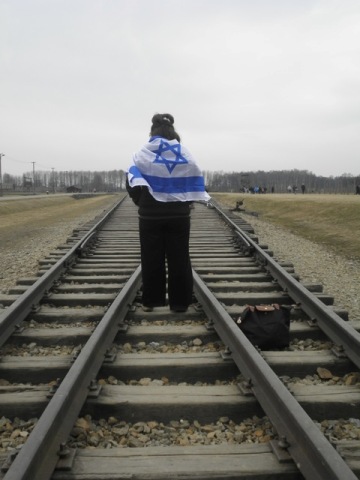


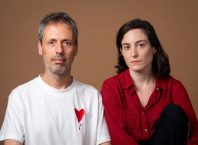

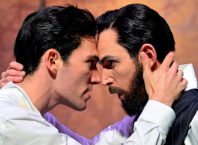
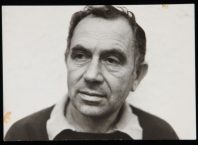
My tears flow freely as I read Elana’s moving account. As long as we remember, the six million are not lost in vain.
Comments are closed.